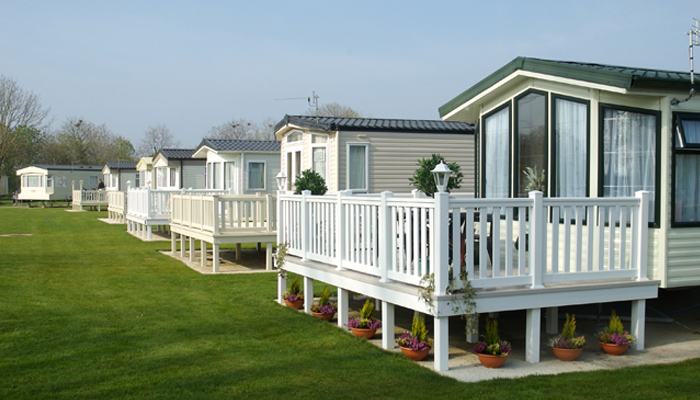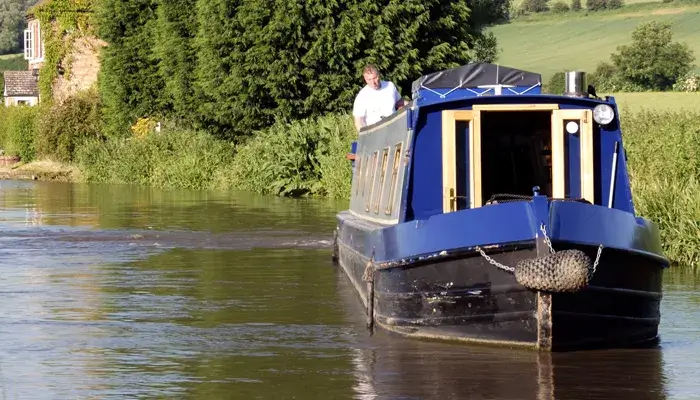How to Prevent and Deal with Damp in Your Caravan
Damp in a caravan is the number one enemy of any caravan owner. Not only is it difficult to deal with, but caravan damp repair costs are the most expensive problem to correct compared to other issues, including mechanical issues and tyre changes.
How to prevent caravan damp
In the case of caravan damp, prevention is more effective than curing. Luckily, keeping your caravan damp-free is easy if you know some preventative measures.
Spotting the signs of damp and stopping the potential problems is also imperative to your finances, as most caravan insurance policies will not cover the cost of the damage it has caused.
To save you having to fork out on the cost of fixing the problem further down the line, follow these steps:
- Invest in a damp meter: a damp meter will measure the level of water in the air. Any reading under 15% is considered fine; there is no moisture in the air. Between 15-20%, you might want to investigate further. If in a few months the reading is even higher, this means there’s definitely dampness within the caravan and you’ll have to make the necessary checks and repairs described further down the article.
- Dry your clothes outside of the caravan instead of inside. Water vapour from the clothes rises and can collect in the air, making it a haven for condensation and damp.
- If you have a hot shower or boil water to cook, allow the steam to escape easily and quickly through open windows. Avoid creating steam too often within the caravan.
- Increase ventilation: leave the cupboards, windows and doors open when you can as well as unblocking any airways or grates. Air movement minimises condensation build-up.
- If you’re leaving your caravan for an extended time remove all bedding, mattresses and pillows, wipe all the water out of the showers and sinks and invest in a waterproof but breathable caravan cover.
- Check on your caravan in general: make sure to visit your caravan at regularly throughout the year, spot-checking for any sign of damp as well as any places where damp could occur, like cracked pipes.
- Damp thrives in the rainy and wintry months, so try to keep your caravan as dry as possible by heating it with a warm air fan or caravan heater.
How to check a caravan for damp
Checking your caravan for damp is easy when you know the tell-tale signs to look out for. If you suspect damp is afoot, running through this indicatory checklist can help to nip the problem in the bud and minimise the damage from the offset:
- A musty smell: the most noticeable sign of damp is a mouldy, almost boggy smell.
- Dark, wet patches on the walls and floor: these darker areas usually indicate water stains.
- Black mould against the door and window seals.
- Sponge-like walls: if you press against one of the walls in your caravan and it feels soft, damp is present in the interiors. A good test for this is to knock on the wall, if the knock makes a dull sound as opposed to a hard knock, then you’ll need to investigate further.
- Look for any places where water could escape: keep an eye out for cracks in sinks or shower trays; split taps or showerheads; and breaks in work surfaces.
What do you do if your caravan has damp?
If your caravan has damp, don’t dump it just yet; there are some fixes you can try to resolve the issue. Finding the right solution for caravan damp depends on what has caused it in the first place. To treat damp effectively, find all the places in your caravan that have been affected and go from there. Look for the signs above – like dark patches and a spongey floor – in every nook and cranny of your caravan.
Some common causes of damp in caravans and their fixes are:
- Mould: you can remove most mould with mould removal spray or a homemade cleaning solution of washing up liquid and warm water or half vinegar, half water. Never use bleach on mould. Use a scrubbing brush and apply some pressure to the affected areas. Let it dry completely, then fill a spray bottle with a tablespoon of clove oil and a litre of water and spray this over the surface. If the mould is quite substantial, you may need to call a professional in to remove it altogether.
- Condensation: a dehumidifier reduces the amount of moisture in the air, making the atmosphere drier and therefore more difficult for damp to occur. Dehumidifying crystals or even cat litter will remove excess vapour.
- Leaks through cracks or improper seals: if you’ve found the source of the leak, assess whether it can be patched up with a sealant or whether the pipe/roof/shower needs replacing completely.
How to dry out a damp caravan
If water ingress has occurred, drying out a damp caravan can be a mammoth task, especially if it has affected the wood framework. If the damage is minimal, following the heating and dehumidifying steps to completely dry the caravan out can do the trick, however, if the problem has spread quite considerably, you may want to consult a professional.
An approved expert will be able to provide a full and thorough assessment, let you know of possible next steps and even carry these out for you using equipment that you would have had to purchase yourself.
How to get rid of a musty smell in your caravan
There’s a chance after you’ve removed the mould from your caravan that the musty smell remains. You can combat with simple cleaning steps, using products that you can either make at home or buy readily available from home stores.
- Thoroughly wash all bedding, upholstery and soft furnishings in your caravan. Steam ironing post wash blasts the fabrics with heat to kill any leftover spores.
- Rip up and replace any carpets with easy-cut mats or laminate flooring to avoid mould collecting on the floor in future.
- On all remaining surfaces, like worktops and walls, spread bicarbonate of soda across them and then spray the same vinegar solution for mould removal over the top. The vinegar and bicarbonate of soda should react to clean both the surface and the air. After 24 hours, vacuum the residue and open the windows for a few hours.
- Make sure to have a deep clean with mould spray at regular times during the year and keep ventilating your caravan to avoid mould build-up.
- Avoid masking the symptom without tackling the cause; if your caravan smells musty don’t just buy an air freshener, get rid of the problem and the bad smell will disappear!
Date: January 20, 2023
Category: Caravan









